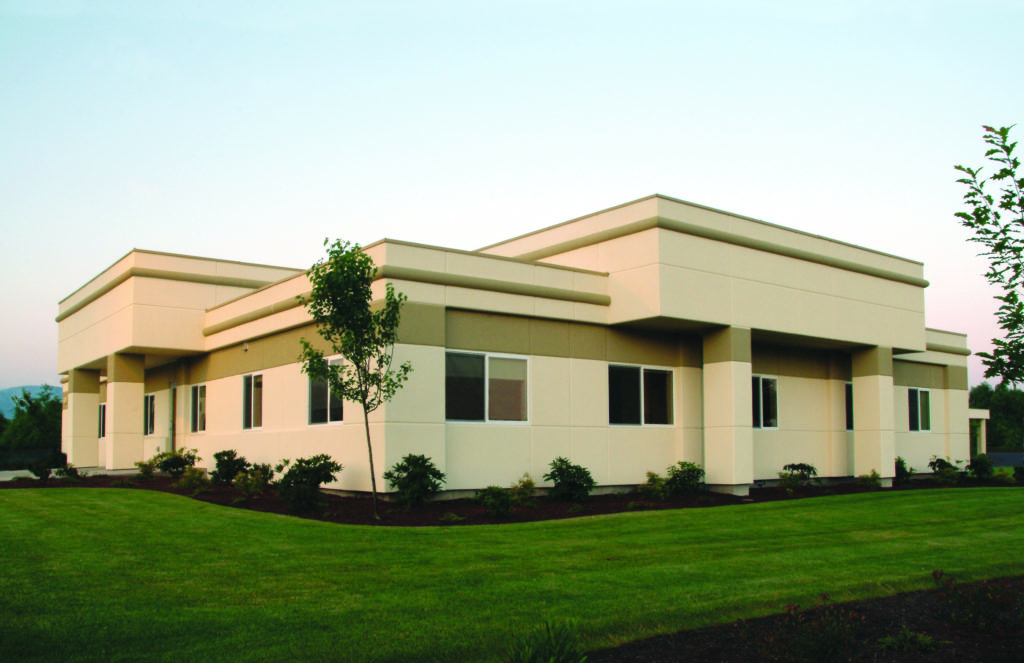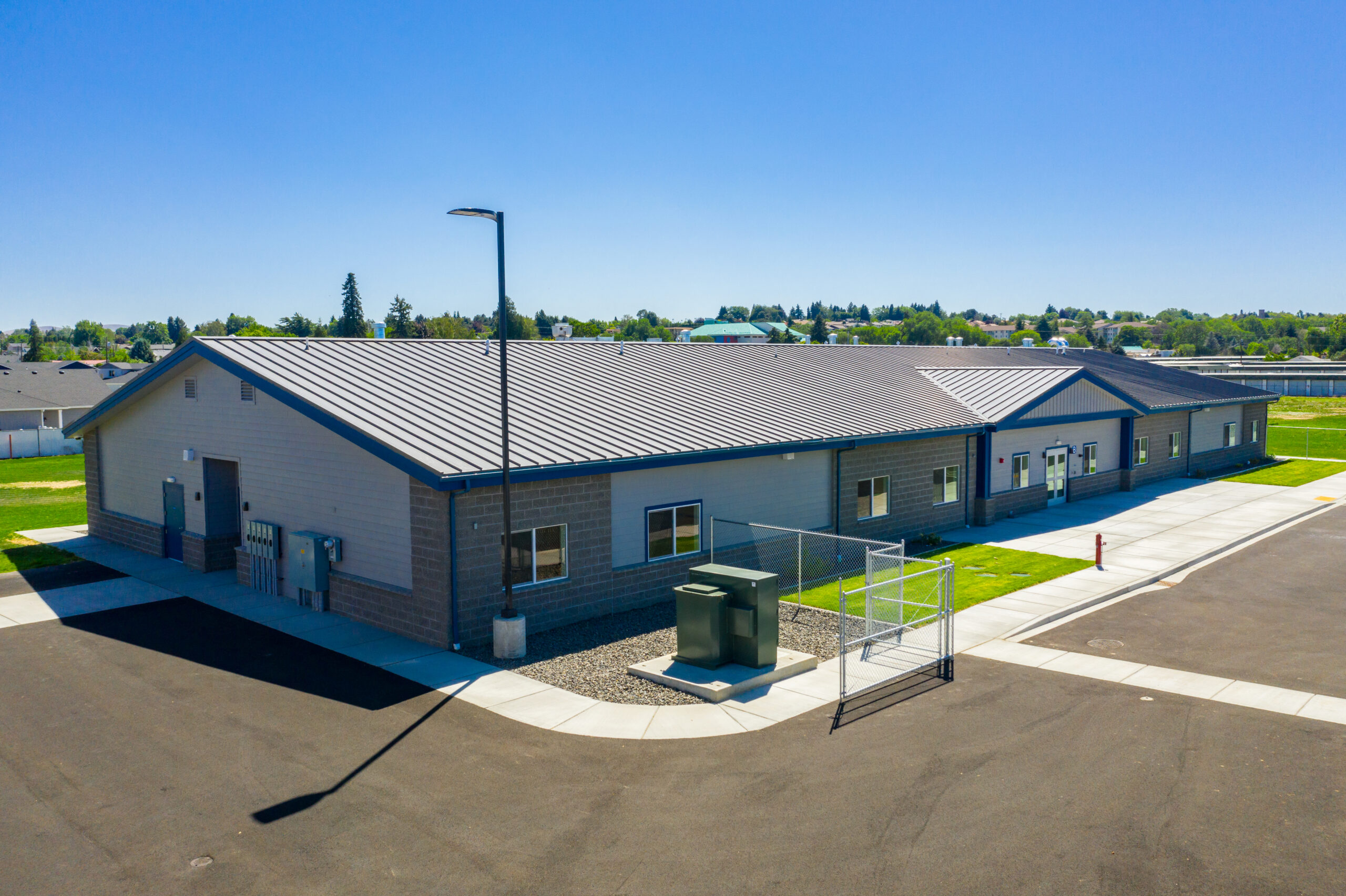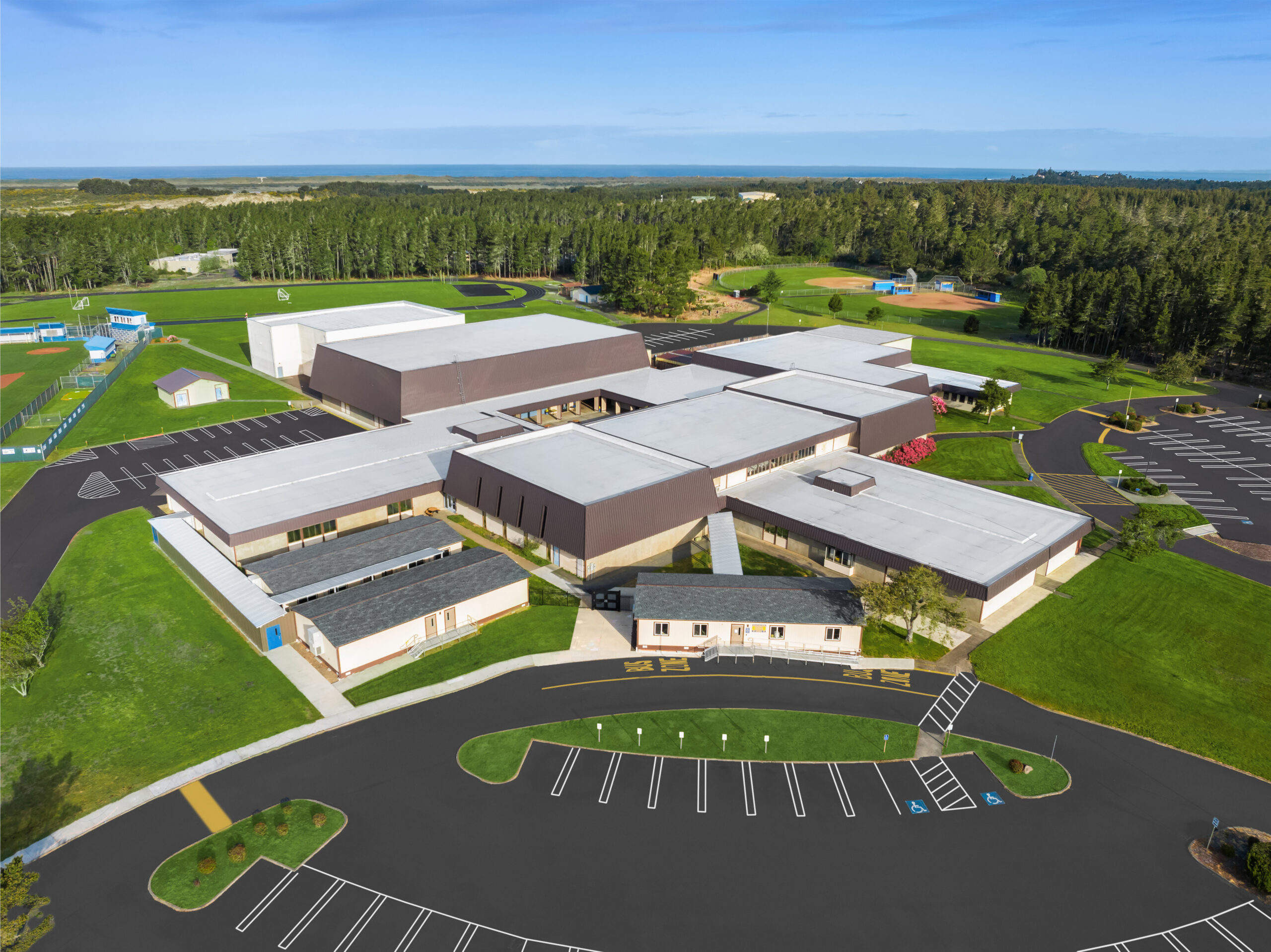
How the U.S. Government Takes Advantage of the Benefits of Modular Construction
In recent years, modular construction has gained significant traction as a game-changing approach to building projects quickly and efficiently. The U.S. government, known for emphasizing cost-effective and sustainable solutions, has increasingly embraced modular construction in various sectors. Modular construction allows for fast, flexible, and cost-effective procurement solutions for delivering projects on time and within budget.
What is Modular Construction?
Modular construction involves the fabrication of building components off-site in a controlled factory environment. These components, or modules, are then transported to the project site and assembled to create a fully functional structure. It differs from traditional construction methods, where most building activities occur on-site. Off-site construction allows for a greener, faster, smarter approach to traditional stick-built construction that appeals to the U.S. Government.
Greener: The factory-controlled process generates less waste, creates fewer site disturbances, and allows for tighter construction.
Faster: Construction of modular buildings occurs simultaneously with site work, allowing projects to be completed in half the time of traditional construction.
Smarter: Modular buildings are built with the same materials and to the same building codes and architectural specifications as traditional construction. Once assembled, they are virtually indistinguishable from their site-built counterparts.
GSA Multiple Award Schedule
Many government projects go out to bid through the GSA Multiple Award Schedule (MAS) Contract. GSA issues long-term governmentwide contracts that provide federal, state, and local government buyers access to commercial products, services, and solutions at pre-negotiated pricing, including modular buildings. Pacific Mobile Structures services a variety of cooperative purchasing contracts, including GSA, to procure modular buildings. Learn more here.
Government Applications
A variety of government construction projects are put out to bid with the specification that modular building practices are to be used to complete the project. Some of these projects include:
- Rapid Deployment for Disaster Response
- Military Applications
- City Halls and Headquarters
- Ancillary Office Space
- Fire Stations and Centers
- Police Stations
- Border Patrol Offices
- Public Schools and Educational Facilities
Rapid Deployment for Disaster Response
When disaster strikes, time is of the essence. The U.S. government has recognized the speed and efficiency of modular construction as an invaluable asset for disaster response efforts. Modular units can be quickly manufactured and transported to affected areas, providing emergency shelters, medical facilities, and command centers within a short timeframe. The speed at which modular units can be deployed allows for swift response coordination and efficient allocation of resources, ensuring timely aid and recovery efforts.
Military Applications
The U.S. military relies on modular construction for various applications. Modular structures serve as barracks, training facilities, headquarters, and expeditionary hospitals in remote locations. These structures can be rapidly deployed and assembled, enabling the military to quickly establish operational bases or expand existing ones. The military can respond swiftly to changing needs by utilizing prefabricated modules, ensuring readiness and flexibility in various operational scenarios. Modular construction significantly reduces construction time and costs, allowing the military to allocate resources efficiently and focus on mission-critical activities.
City Halls and Headquarters
Modular construction is preferred for city halls and government headquarters due to its speed, cost-effectiveness, and flexibility. With modular construction, government agencies can quickly establish functional workspaces to accommodate administrative needs. Modular buildings can be customized to meet specific requirements and architectural designs, ensuring that they align with government organizations’ aesthetic and functional needs. The controlled factory environment in which the modules are constructed ensures consistent quality and reduces the risk of delays or construction errors. Modular city halls and headquarters provide government officials with efficient work environments that promote collaboration, productivity, and streamlined operations.
Ancillary Office Space
The U.S. government often requires additional office space to accommodate the growing needs of various agencies or during temporary situations such as office renovations. Modular construction offers a practical solution for creating ancillary office space quickly and cost-effectively. With modular buildings, additional office modules can be easily integrated into existing structures or set up as standalone units. These modules can be customized to match the aesthetic and functional requirements of the existing office space. Because modular construction minimizes disruption to daily operations, the installation and integration of modular office units can be efficiently carried out, ensuring minimal downtime and maximum utilization of resources.
Fire Stations and Centers
Fire stations and emergency response centers require robust and efficient facilities to support the crucial work carried out by firefighters and emergency response personnel. Modular construction offers several advantages in this context. Fire stations and centers can be quickly erected using prefabricated modules, providing a swift response to the needs of growing communities or areas with outdated infrastructure. The modular design allows for integrating specialized features such as equipment storage areas, training rooms, and living quarters for firefighters. Additionally, modular fire stations can be expanded or relocated as needed, accommodating changes in population density or emergency response strategies. The controlled manufacturing process ensures that the modules meet the strict safety standards and regulations necessary for fire stations and emergency centers.
Police Stations
Modular construction provides an efficient and cost-effective solution for constructing police stations. Police stations require secure and functional spaces to support law enforcement operations, community engagement, and public safety. Modular construction allows for the rapid deployment and customization of police stations to meet the specific needs of each community. The controlled factory environment ensures consistent quality and adherence to security protocols. Modular police stations can be designed to include specialized features such as holding cells, interview rooms, evidence storage, and command centers. The flexibility of modular construction allows for easy expansion or relocation of police stations in response to changing community dynamics or operational requirements.
Border Patrol Offices
The U.S. government relies on modular construction to establish efficient and secure Border Patrol offices along the nation’s borders. Modular construction offers a practical solution for quickly deploying offices and facilities that support border security operations. These offices serve as command centers for Border Patrol agents, providing administrative workspaces, surveillance monitoring areas, detention facilities, and interview rooms. By utilizing modular construction, Border Patrol offices can be rapidly established or expanded to address evolving border security needs. The controlled manufacturing process ensures the modules meet stringent security requirements, including access control measures and integrated surveillance systems. Modular construction enables the government to enhance border security infrastructure while minimizing construction time and disruptions to ongoing operations.
Public Schools and Educational Facilities
Modular construction has become increasingly popular for schools and educational facilities across the United States. With growing student populations and evolving educational needs, modular construction offers a flexible and efficient solution. Modular classrooms and school buildings can be quickly manufactured and assembled, allowing for rapid expansion or the establishment of new schools in areas with limited resources or space constraints. These modular structures are designed to meet specific educational requirements, including classrooms, administrative offices, laboratories, libraries, and common areas. The controlled factory environment ensures quality construction and adherence to safety standards, providing students with safe and conducive learning environments. Modular construction in schools also offers the advantage of minimizing disruption to educational activities, as on-site construction time is significantly reduced. By leveraging modular construction, the U.S. government can address the increasing demand for educational infrastructure while delivering projects on time and within budget.
Supporting an Increased Focus on Sustainability and Energy Efficiency
The U.S. government has increasingly emphasized sustainability and energy efficiency in its construction initiatives, recognizing the importance of reducing environmental impact and promoting long-term sustainability. Modular construction aligns perfectly with these goals. Modular buildings often incorporate energy-efficient features like insulation, solar panels, and energy management systems. Off-site fabrication significantly reduces waste generation, as materials can be precisely measured and utilized, minimizing construction waste. Additionally, the transportation of modular components to the project site reduces the carbon footprint associated with traditional on-site construction. The U.S. government demonstrates its commitment to sustainable building practices by embracing modular construction. It supports its broader environmental objectives, creating greener and more energy-efficient structures for the benefit of both present and future generations.
Embracing the Future of Government Construction with Modular Construction
Modular construction has emerged as a powerful tool for the U.S. government to achieve its construction goals efficiently, cost-effectively, and sustainably. Modular construction offers a solution that aligns perfectly with the government’s need for speed, flexibility, and quality by harnessing the benefits of off-site fabrication, rapid deployment, and customization. From disaster response and military applications to city halls, fire stations, police stations, border patrol offices, and educational facilities, modular construction has proven its versatility and effectiveness across various sectors. As the government continues to prioritize sustainability and energy efficiency, modular construction’s ability to minimize waste, reduce environmental impact, and incorporate energy-efficient features further reinforces its value. The future of government construction is undoubtedly intertwined with the advancements and advantages offered by modular construction, paving the way for resilient, sustainable, and innovative infrastructure that serves the needs of communities and promotes progress for generations to come.



